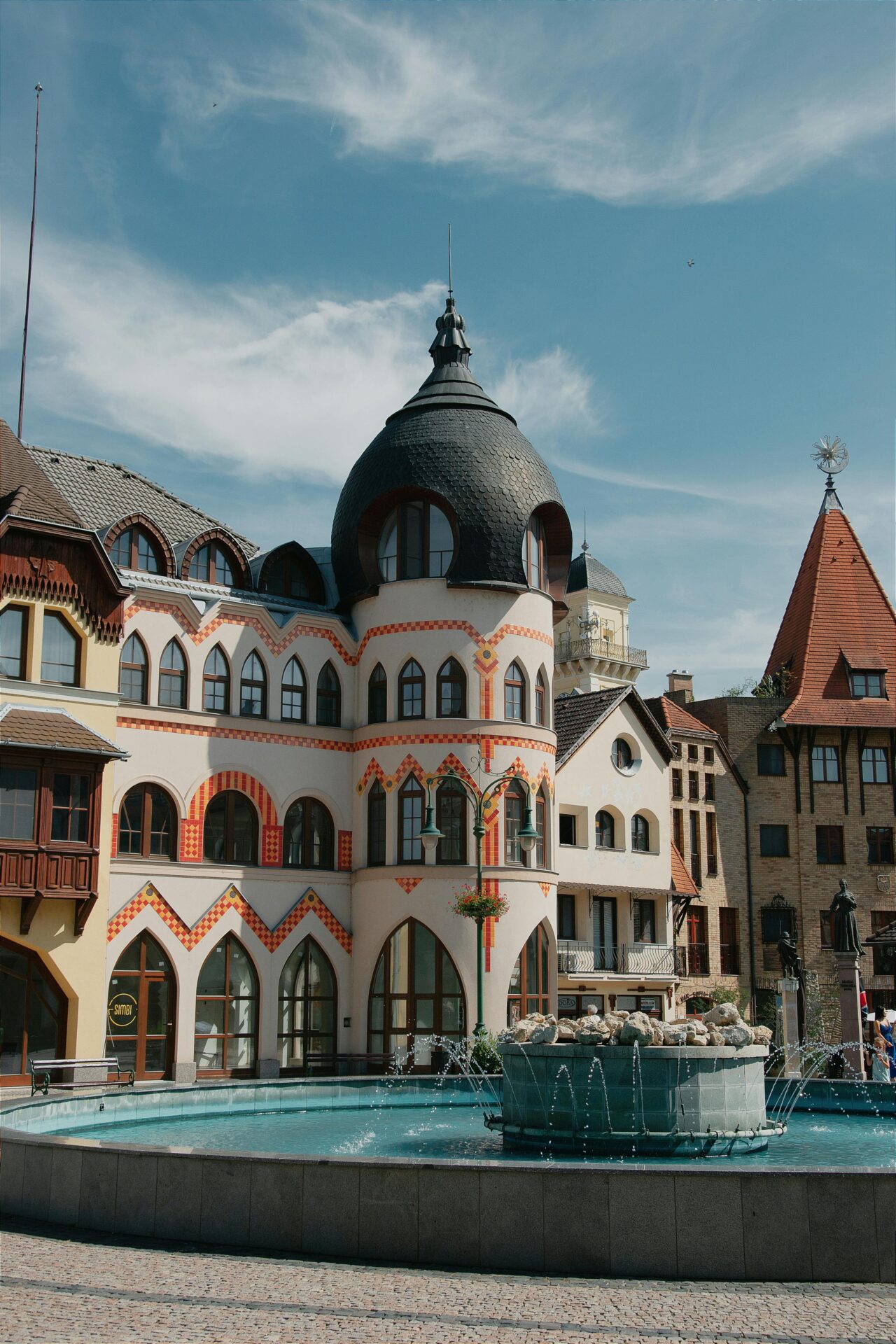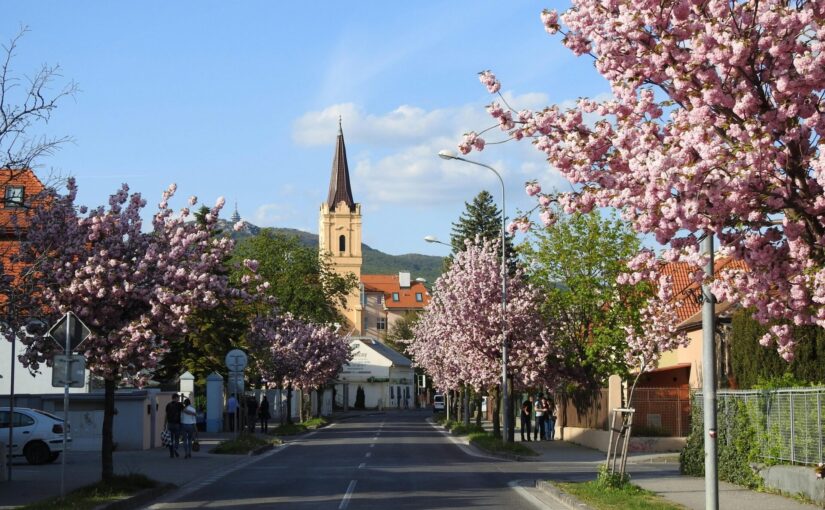Field of study in Wageningen: International Development Studies
Study period exchange: 18/09/2023 – 31/01/2024
Country (exchange): Slovakia
City (exchange): Nitra
University (exchange): Slovak University of Agriculture
Faculty (exchange): Faculty of European studies and Regional development
2. Motivation for exchange
Why did you choose to go on study exchange?
I chose to go abroad, since I have heard a lot about it from friends and family. They were very enthusiastic when they went abroad. Also I thought it would be a great experience and learning moment for myself.
What is the reason you chose for this country/university?
I actually did not know a lot about Slovakia before going, but the courses seemed fun and the country itself is not very known, but really beautiful.
3. Accessibility to reach destination
It is possible to travel by train since there is a train from the Netherlands to Vienna. From Vienna you can go to Bratislava and from Bratislava you can get a FlixBus or train to Nitra. It is also possible to travel by car or plane.
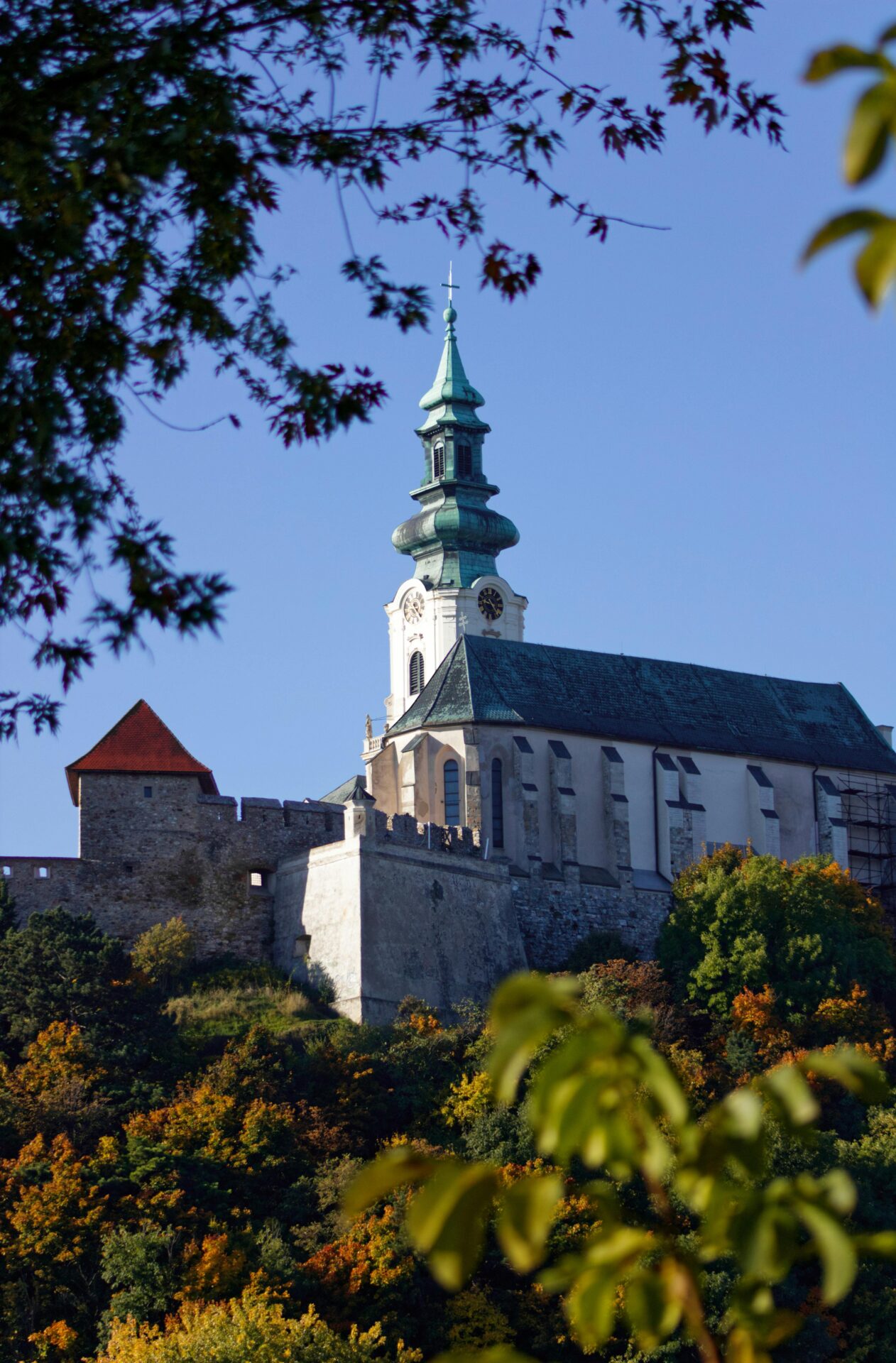
4. University and studying
Could you provide some general information about the followed courses?
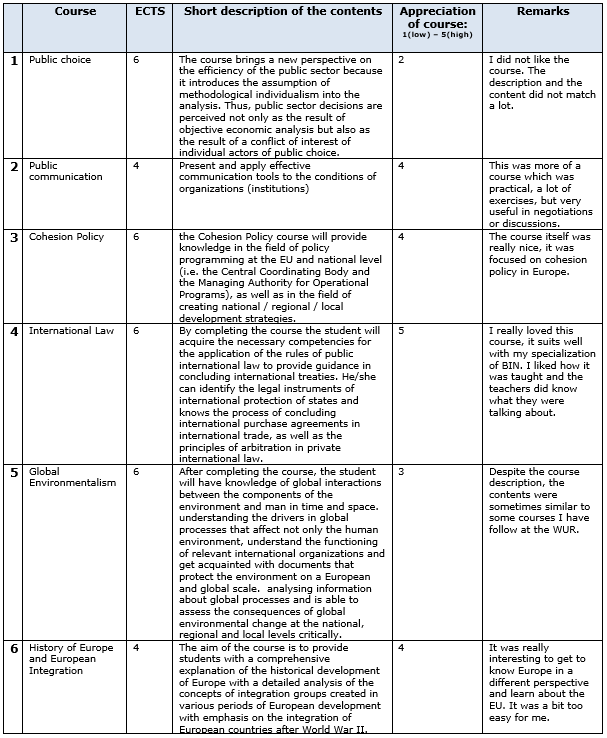
What is it like to study there?
The nice thing of this university is that on Fridays students have a day off to use that time to work on their study. The students and teachers try to help wherever then can to makes sure you are integrated at the university. However this is sometimes difficult, because the courses are also offered in Slovak, which most student choose. So a lot of my course were only with 3 or 4 people in total. Also, the level of English is very low. Sometimes it was possible to have class at seven, but the schedules were manageable. The lectures are often 1,5/2 hours and don’t always have a short break. Which is a huge difference with the WUR.
What is the culture of the university?
Most lectures are very approachable, especially to international students, there aren’t many international students at the university, so they take good interest in you. It is hard however to connect to more local students, like I mentioned before. The language barrier makes it very hard to make contact, since you are not following the same course. I think the biggest difference between SPU and WUR are the ways of teaching, since the classes are so small and for 13 weeks or so, you can develop a connection between the lecturer and the student. I do think the educational level at the WUR is way better and higher. Some masters courses had content, which I have had during my second year of the bachelor.
What does the university offer the student additionally?
The university offers a room in a shared dormitory, with a hallway shared “kitchen”. This kitchen only provided a microwave and two electric stoves. Besides this, there was a dining hall in some dormitory where you could eat dinner. The university also offered (free) sport facilities and classes.
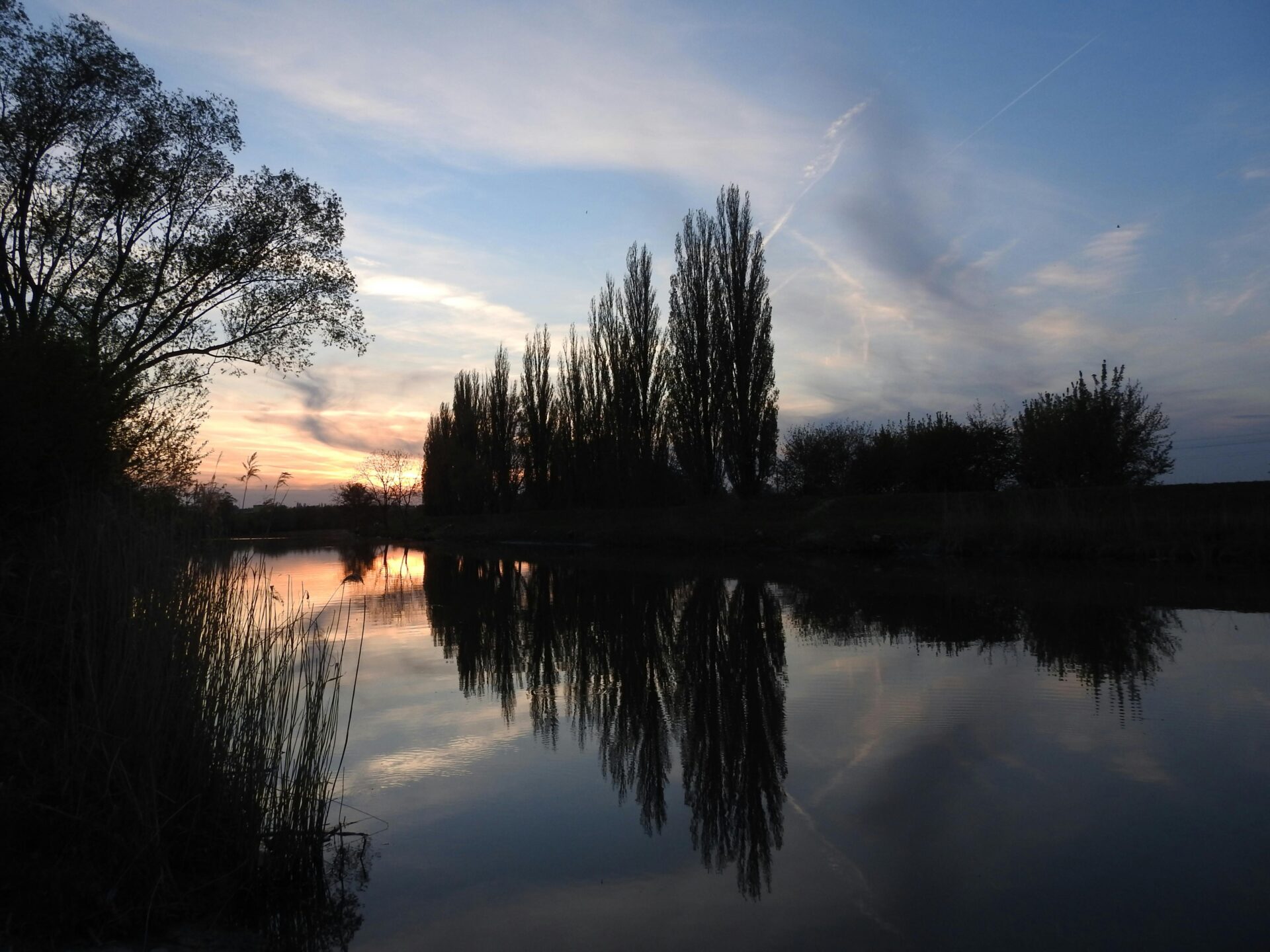
5. Housing-travelling-living
What are the possibilities for housing?
It is hard to rent a room outside the university, since barely anyone speaks English. However the offer rooms in the dormitory. These are shared rooms.
What is the culture of the country like?
People are less rushed and really try to help wherever they can. Their culture is based on close relations with their family, those are important. The food was not very different, but they do eat a lot of cabbages.
Could you give some information about public transport infrastructure?
The public transport could be paid with card. For the students from the EU and under 27 you get a pass to travel for free with some trains in the country, which is amazing. A side note is that the information on this and the train apps are not in English, only in Slovak. And everything was within walking distance, since the dormitory is on campus. The library is a 25 minute walk and the same goes for the faculty of law in the city centre.
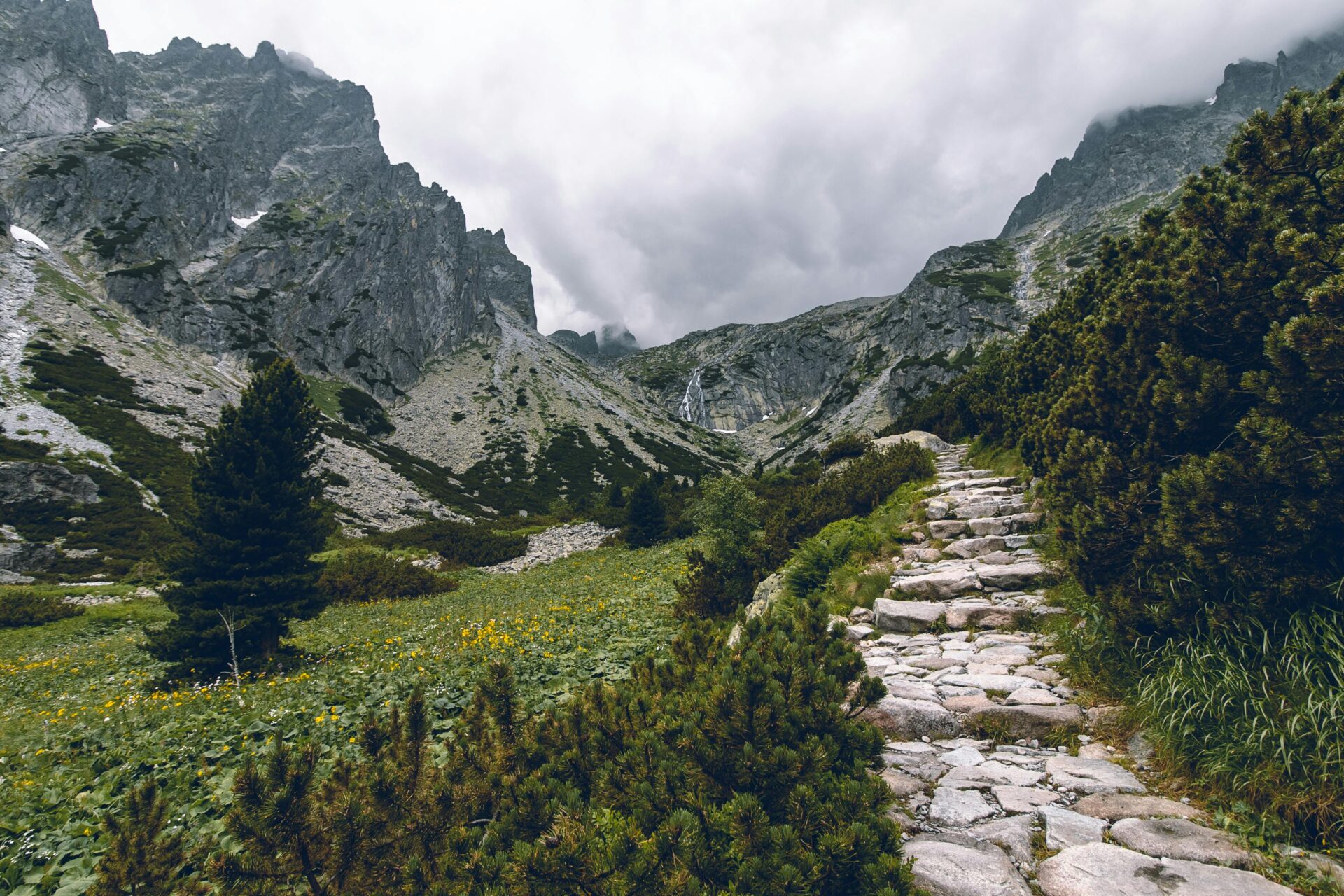
6. Expenses
Can you give an indication of your expenses for/during your exchange?
The rent was much lower compared to the living cost. The average living costs were about the same as in the Netherlands. The books could be rented in the university library, so I did not have those costs. Dining out, was often way cheaper compared to the Netherlands. It depended on where you ate, but overall going out to eat and drink way cheaper.
7. Free time
What are must-sees in the area?
Slovakia is in the centre of Europe, thus it is easy to visit cities like Bratislava, Budapest, Vienna. Besides visiting other countries, Slovakia itself has an amazing places you should visit. The Tatra mountain area offers a lot of beautiful hiking routes and there are some national parks. I went to Slovak national paradise park in autumn. I recommend to visit some of the older (mining) cities and some castles. I loved Bojnice castle.
What does not appear in a travel guide, but is definitely worth a visit?
Do visit the hill/mountain in Nitra itself, it gives a beautiful view over the city, also visit the wine festival in Nitra itself.
Do you have general tips and tricks about leisure time?
Try to explore as much as you can since travel costs are low or there aren’t any costs at all for traveling. You have the time now. Skip some of the famous things, but ask some locals about places which are worth visiting.

7. Challenges & best moment abroad
What challenges did you encounter and how did you overcome them?
A few courses which I had chosen beforehand, were not available when it went there. Since the lack of interest, a lot of English courses did not happen (not only for me, but some friends as well). It was very hard to choose some new courses which had my interest. I asked the faculty coordinator to help me in the process of choosing new courses.
What is your best memory of your time abroad?
I am not sure if it is a memory, but when I look back at the time, when difficulties appeared, they were actually not that big, but I did overcome them. I think it helped me to become more independent and accepting and adapting to some situations.
